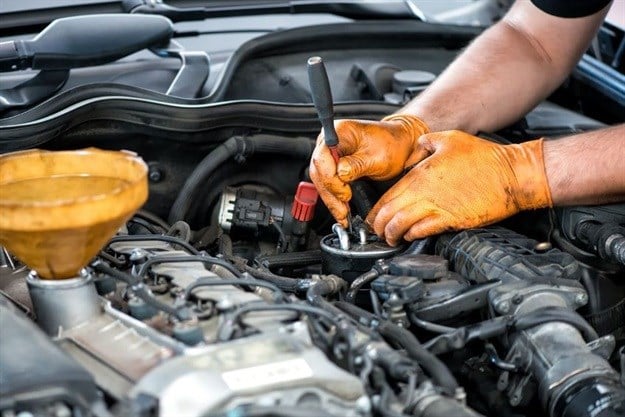
Top stories






AutomotiveHilux Custom Builds offers purpose-built solutions for your business
Toyota South Africa Motors 16 Feb 2026
More news


Marketing & Media
Ads are coming to AI. Does that really have to be such a bad thing?














Pieter Niemand, director of the Motor Industry Workshop Association (MIWA), says, “It’s a challenge for workshop owner to find skilled staff and head-hunting has become the norm. Workshop owners need to train their current staff and identify where the skill gaps lie.”
Vehicles have become increasingly more complex over the years with the addition of highly advanced electronic components. Mechanics are now expected to be service engineers with the ability to operate at complex, technical levels.
“We believe auto workshop owners will need to shift their focus from merely retaining customers to offering a multi-skilled expert that can advise on and service vehicles across the board.
The key is encouraging a steady stream of new talent into the industry. “One of the industry’s challenges is in attracting newcomers. Unfortunately, the misperception still exists that workshop mechanics are merely grease monkeys, who spend their days covered in oil, taking engines apart. The reality is that the only people as skilled as fully qualified automotive technicians are aircraft technicians. Automotive technology has developed so far that mechanics is only one of four skills technicians must learn. The others are electrical, electronics and advanced computer skills.”
In order to remain competitive against the OEM dealers, the aftermarket auto shops have to depend on technical manuals, manufacturers’ service information, even the internet for updated technical specs and fault identification because of the variety of models they have to service. “Diagnostic equipment assists to a certain extent but it can only do so much. The Right to Repair campaign is working towards bringing about a change in the industry where information will be made accessible to independent workshops but until then workshops have to work with what is available. It does, however, mean that mechanics need to be continuously upskilling to meet the demand.
For this reason, identifying training opportunities for the sector is a priority for MIWA.
“Several years ago we approached American training company, Delmar, to host its automotive technician training programme in South Africa. This resulted in a Master Technician course, which has been accessible to workshops and has been well received.
“MIWA has also partnered with the AA Technical College where those who sign up receive a three-week practical followed by a two-day trade test aimed at automotive electricians, diesel mechanics and motor mechanics.
“The trade test is designed to allow experienced workshop staff to attain a qualification even though they did not attend formal training. The Minister of Higher Education and Training has announced changes to the ARPL (Artisan Recognition of Prior Learning) process, the first of which is for Motor and Diesel Mechanics. These changes will come into effect on 19 October, so the AA is offering MIWA members a 50% discount on standard rates for ARPL candidates before this date.”
As the biggest association in the retail motor industry, MIWA has taken on the responsibility of encouraging artisan training by linking with one of the largest providers, Bidvest McCarthy.
“Bidvest McCarthy continues to set training benchmarks and its Bidvest Automotive Artisan Academy offers full trades in Motor Mechanic, Diesel Mechanic and Automotive Electrician apprenticeship programmes. It has three merSETA and NAMB Accredited Training and Trade Test Centres one in Midrand, Gauteng, one in Pinetown, KwaZulu-Natal and one in Blackheath, Cape Town.
“We have a major unemployment problem in South Africa and there is much opportunity in the aftermarket motor industry. The time has come to put aside misperception and encourage young people to consider training in this industry. It is also the time to invest in upskilling existing staff so we can provide consumers with the best service for the least amount of money, and a turnaround time that provides the least inconvenience. With today’s vehicles demanding more training and greater specialisation, mechanics are going to have to adapt to changing technologies continuously. Training is available and should be considered to ensure the industry remains relevant,” concludes Niemand.